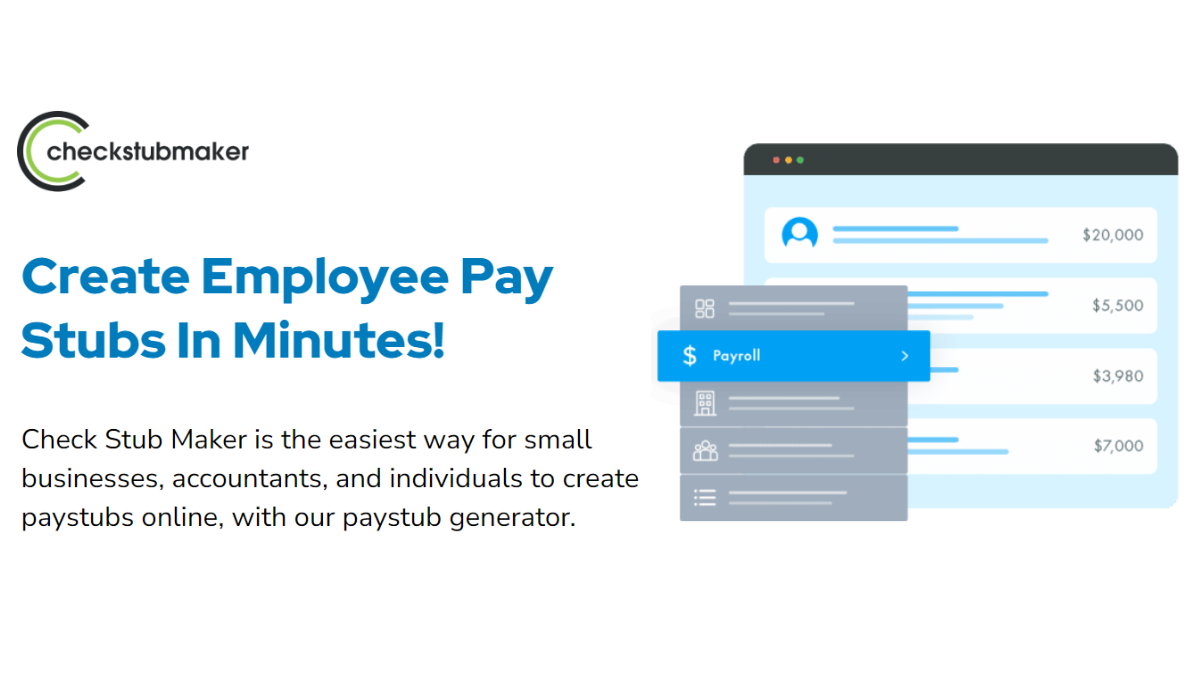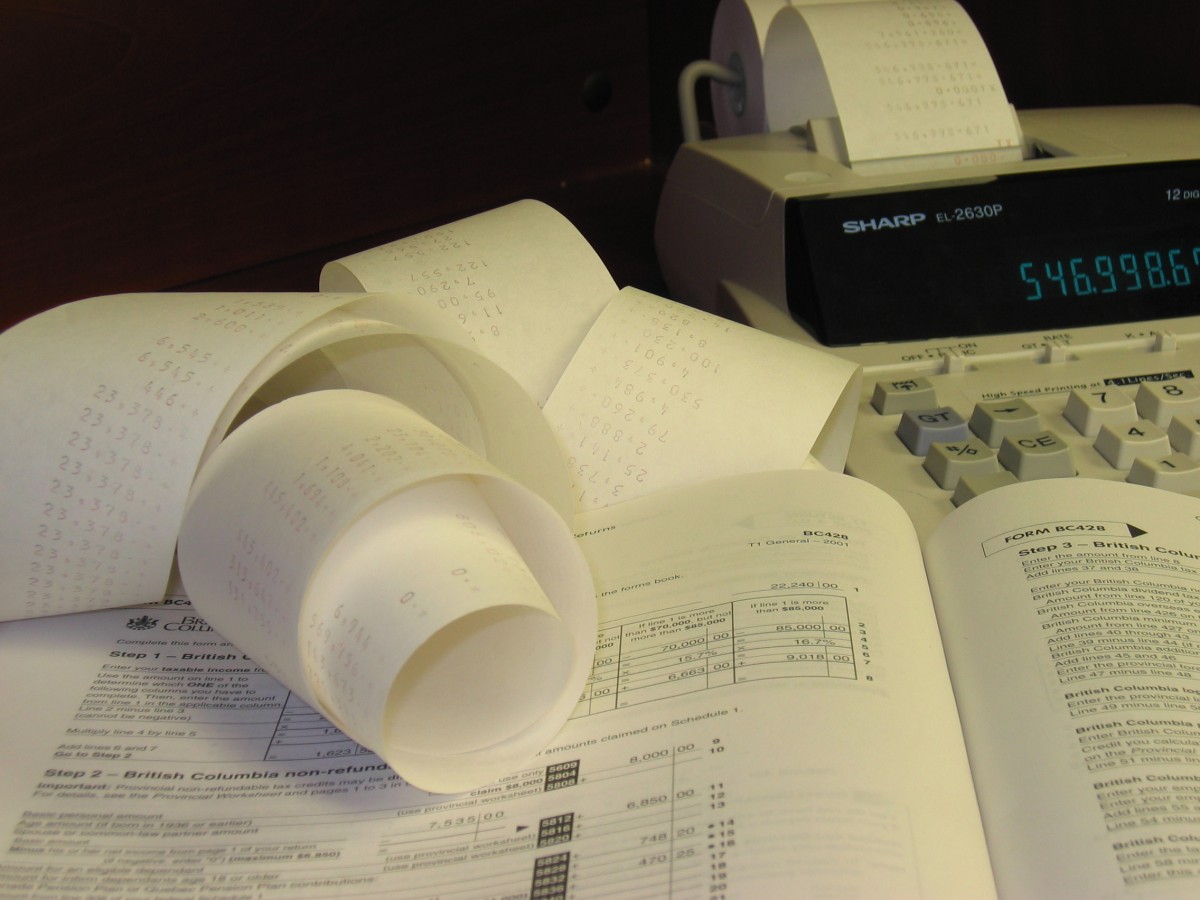As tax season approaches, are you wondering, ‘Why would you want to claim an exemption on your pay stub?' By learning how to read paystub , you can claim an exemption and reduce the amount of tax withheld from your paycheck. This is particularly beneficial for people who don't expect to owe any federal income tax during a given tax period. At Check Stub Maker , we're experts in the payroll process and can help you manage this with our easy-to-use pay stub generator . In this article, we'll explore how tax withholding and exemptions work, how they're reflected on pay stubs, and who qualifies for these exemptions. Let's dive in! What this article covers:
What Does an Exemption on a Pay Stub Mean?
As per our expertise, an exemption can be found on a standard paycheck stub , pertaining to certain portions of your salary which aren't subject to tax withholdings. By claiming an exemption on your taxable earnings, you can decrease the federal income tax usually withheld from your paycheck and ultimately increase your take-home pay. At Check Stub Maker, our pay stub creator makes it easy for you to properly reflect these exemptions on your pay stubs.
How Is Withholding Determined?
Withholding is determined by the information you provide on your W-4 form from the IRS, such as:
- your filing status
- the number of allowances or dependents you claim
The amount generally withheld from your paycheck is paid directly to the government to cover your federal income taxes. Our check stubs help you understand these details, helping you adjust your withholding to better match your tax liability in your payroll documentation. 
Who Qualifies for Tax-Exempt Status?
Certain people and institutions can qualify for tax-exempt status if they meet specific requirements set by tax authorities. These groups often include married couples and those with dependents, as well as nonprofit organizations, public benefit organizations, and certain charities. Table: People And Organizations Who Qualify For Tax Exemptions
Type Of ExemptionDescriptionCurrent StatusPersonal Exemptions- Reduces taxable earnings for the taxpayer and spouse
Dependent Exemptions- Reduces taxable wages for each qualifying dependent
Tax-Exempt Organizations- Certain organizations are exempt from federal income tax
-
Examples include nonprofits, charities and religious institutions
-
Active
-
Must apply to IRS for exemption status
State and Local Exemptions- Varies by state
-
Includes property tax, sales tax, and specific monetary tax exemptions
-
Active
-
Differs according to location
Personal Exemptions
Based on our first-hand experience, personal exemptions allow taxpayers to reduce their taxable income by a set amount for themselves and, if applicable, their spouse. These exemptions were historically a significant way to lower tax burdens. However, recent changes in tax law, such as the Tax Cuts and Jobs Act of 2017 , have suspended personal exemptions from 2018 to 2025. Despite this, understanding their potential return and the role they played is crucial for future tax planning.
Dependent Exemptions
Dependent exemptions are pivotal for taxpayers with dependents, as they allow a reduction in taxable salary for each qualifying dependent. Although these exemptions are also suspended until 2025, they previously helped families significantly reduce their tax liability.
Tax-Exempt Organizations
Certain organizations qualify for tax-exempt status, such as:
- non-profit organizations
- charitable causes
- religious institutions
To gain this status, these entities must operate exclusively for exempt purposes as outlined by the IRS without engaging in substantial lobbying or political activities.
State And Local Exemptions
Through our practical knowledge, we know that state and local exemptions often include property tax exemptions for:
- primary residences
- sales tax exemptions for certain goods and services
- income tax exemptions for specific wage sources
At Check Stub Maker, we're here to assist you in navigating these complexities, ensuring your paystubs are accurate and efficient.
How to Claim Exempt Status on a W-4
To claim exempt status on a W-4, follow these steps:
- Check Your Eligibility: Our findings show that tax exemption eligibility includes having no tax liability for the previous year and expecting none for the current year.
- Fill Out The W-4: Complete Form W-4 by filling out the necessary information. In Step 4(c), write "Exempt" in the designated area.
- Send The W-4 To Your Employer: Submit the completed form to your employer to inform them not to withhold federal income tax from your wages.
At Check Stub Maker, we make payroll processing simple and efficient so your tax withholdings are correctly handled time and time again.

How Long Do Exemptions From Withholding Last?
Our investigation demonstrated that exemptions from withholding on a W-4 form typically last for one calendar year. Employees must submit a new W-4 form each year by February 15 to continue their employees' exemption status. If the form isn't resubmitted, the employer is required to withhold taxes as if the employee is single with no other adjustments. At Check Stub Maker, we understand the importance of precise and timely payroll management, our paystub maker helping you stay up-to-date with all tax withholding requirements.
What Is the Personal Exemption for 2024?
The personal exemption for 2024 has been eliminated since the advent of the Tax Cuts and Jobs Act. Instead, taxpayers can now take advantage of the increased standard deduction. In 2024, this translates to $13,850 for single filers and $27,700 for married couples filing jointly.
What Are Your Employer Responsibilities?
Employers must update their payment systems to reflect the current tax year's standard deductions and tax brackets. After putting it to the test, our paystub creator makes it easy for you to generate payroll with all necessary tax information, helping you and your employees meet your responsibilities effortlessly.
What Is the Difference Between an Exemption vs. Deduction?
An exemption excludes a portion of an individual's earnings and their dependents from taxation. Conversely, a deduction lowers taxable wages by subtracting eligible expenses or investments from a person's total earnings. Deductions cover various expenditures, such as:
- mortgage interest
- charitable donations
- business expenses
While both mechanisms aim to lessen the tax burden, exemptions are typically fixed amounts related to specific taxpayers or dependents, while deductions vary based on eligible expenses.

Conclusion
In this article, we discovered that understanding why claiming an exemption on your pay stub is critical for optimizing your tax situation and increasing your take-home pay. At Check Stub Maker , we streamline this process for small businesses and self-employed individuals, ensuring precise handling of tax exemptions. So, what are you waiting for? Try our user-friendly paycheck stub maker today and experience hassle-free payroll management. Let's make managing your finances easier together! Did our blog meet your needs? You might also find our other guides helpful:








